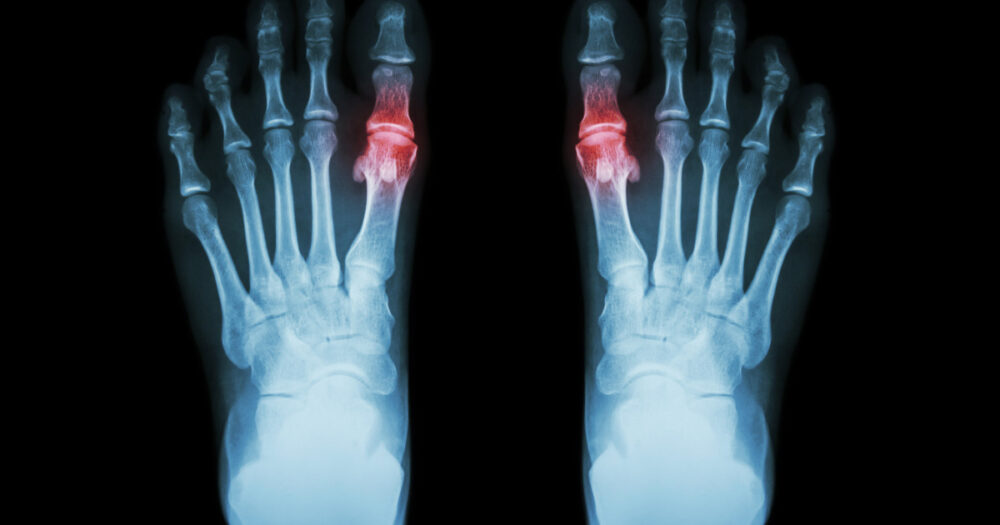By Sammy Kalski, health enews
A news service from Advocate Health Care® and Aurora Health Care®
It’s often joked that consuming too much shrimp can lead to gout. But for many Americans, this painful form of arthritis is no laughing matter. Learning more about gout can help reduce the stigma surrounding it.
“Gout is a type of inflammatory arthritis that causes pain and swelling in the joints,” explains Clayton Keene, a nurse practitioner at Aurora Family Medicine in Oconto, Wis. “It occurs when high levels of urate accumulate in the body, which then forms crystals in and around joints.”
Your body produces uric acid as it breaks down purines, which are found in your body and some foods, such as red meat and some fish. According to the Arthritis Foundation, uric acid dissolves in your blood and exits the body as urine. If your kidneys can’t properly excrete it or if you consume a high purine diet, uric acid can build up, forming urate crystals.
“The most common symptom of gout is pain in the affected joint,” Keene advises. “Most people have their first flare of gout in the big toe; however, it can occur in other joints, too. Symptoms include increased pain, redness, swelling and stiffness.”
An estimated 8.3 million adults in the United States have been diagnosed with gout, according to the National Kidney Foundation. “Gout is more common in middle-aged men, and women are usually only at risk after menopause,” Keene adds.
Unfortunately, some believe gout is a lifestyle disease. “This stigma prevents patients from seeking care. Goutit can also be associated with family history, genetics and the patient’s functioning levels,” Keene states.
He highlights several factors that increase your risk, which include:
- Having high urate levels
- Having a family history of gout
- Drinking beverages high in fructose corn syrup
- Being advanced in age
- Eating foods rich in purines
You may experience one gout attack in your lifetime or several flares a year. It can be diagnosed through a variety of tests.
Keene breaks down each diagnostic test:
- Joint fluid test: Draws fluid from your affected joint with a needle. Urate crystals may be present when looking under a microscope.
- Blood test: Measures the level of uric acid in your blood.
- X-ray: Can rule out other causes of joint inflammation.
- Ultrasound: Can detect urate crystals in joints or in tophi, which are nodules on joints that develop with chronic gout.
According to Keene, gout can only be diagnosed during a flare when the joint is inflamed. Once diagnosed, it can be treated through medication and lifestyle changes.
“Two types of medication are typically used,” Keene explains. “One helps reduce inflammation and pain and the second works to prevent gout by lowering the body’s uric acid.” Common treatments for initial flare-ups include NSAIDS, colchicine or corticosteroids. Medications such as allopurinol or uloric may be prescribed for chronic flares to reduce your body’s uric acid production.
Keene suggests the following lifestyle changes to prevent and manage potential flares:
- Limiting alcohol and drinks sweetened with fructose corn syrup.
- Reducing high purine foods, such as red meat, organ meat and some seafoods.
- Exercising, especially low-impact activities such as walking, biking or swimming.
Do you have hip or knee pain? Take a free online quiz to learn more.
This article originally appeared on health enews.







